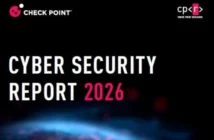
“Your entire life is online. And it might be used against you. Be vigilant.” – Febelfin
Three years following the explosive mass cyber surveillance revelations from Edward Snowden and the global privacy debate that they ignited, the release of the Snowden movie gives us an opportunity to reflect on the current state of our cyber privacy:
- How much do we care about our cyber privacy?
- What are we doing about it?
- How achievable is it to attain enough cyber privacy?
The Importance of Cyber Privacy
Cyber privacy refers to our right to understand and control what happens with our personal information online. It relies on our appreciation of what personal data of ours is stored, processed, transmitted and accessed online and whether it is managed according to associated privacy regulations, such as the Australian Privacy Act. This also includes compliance with the privacy policies of online service providers, such as online banking services, Facebook, Skype, LinkedIn and Twitter, as well as the personal confidentiality expectations we might have of the services we use – such as sharing a family picture with a select group of people or establishing a VoIP call or video conference with one or more co-workers.
Cyber privacy is no different to physical privacy and should be no less important. When we send a private letter by mail, we expect it will remain sealed and private until delivered to our intended recipient – we should have this same expectation online. However, privacy risks are significantly increased online because of the scale of access to digital information, the speed of access to information, the scale of vulnerabilities and cyber threats.
I think there is a general lack of information security and privacy awareness education amongst many cyber users. As such, the likelihood and impact of privacy breaches is significantly increased and, even more so, as we further extend the cyber world to many connected devices in our lives (the Internet of Things), we are further prone to the information they collect, process and hence, place at risk…Click HERE to read full article.






